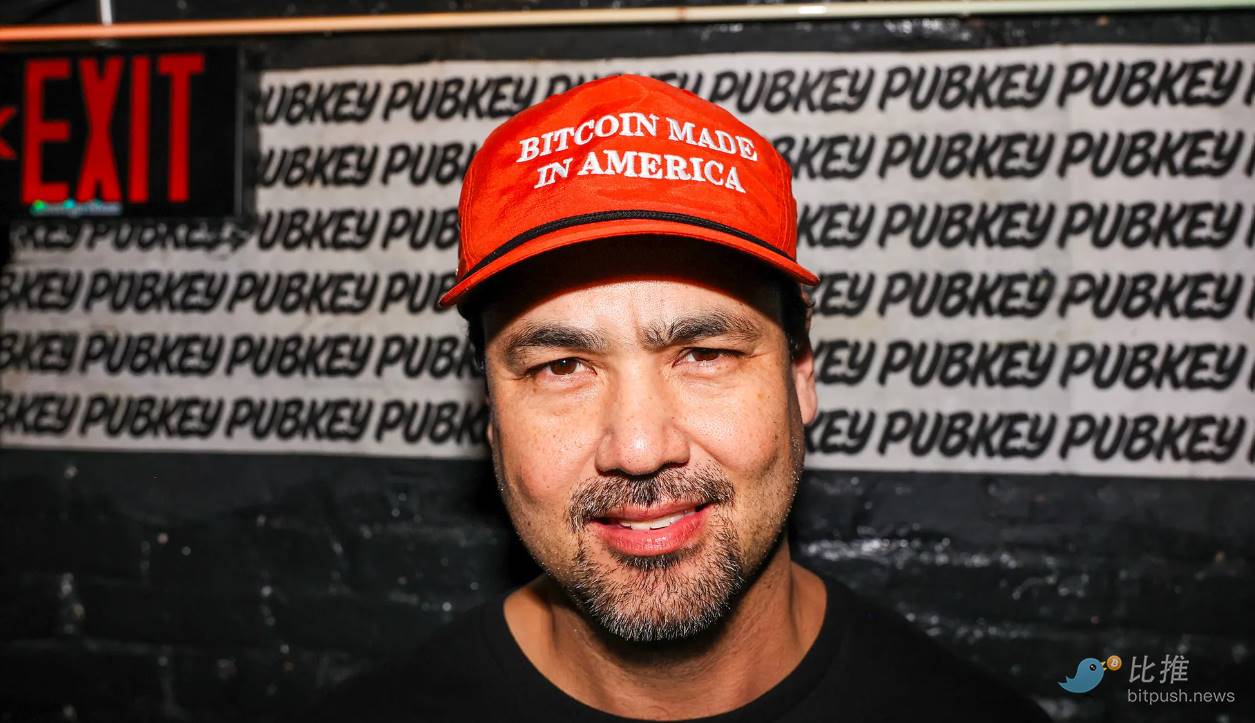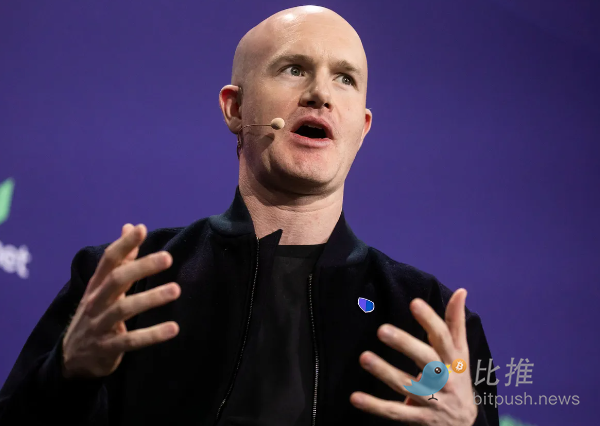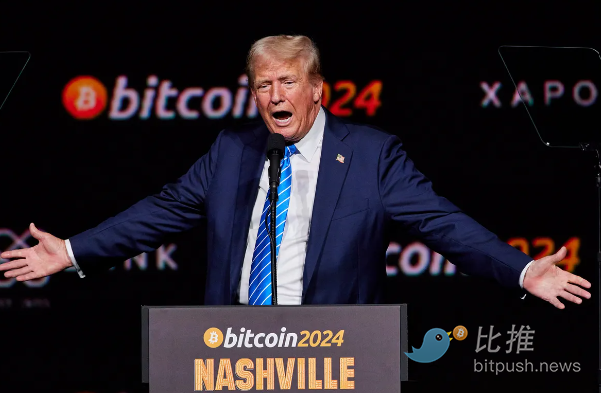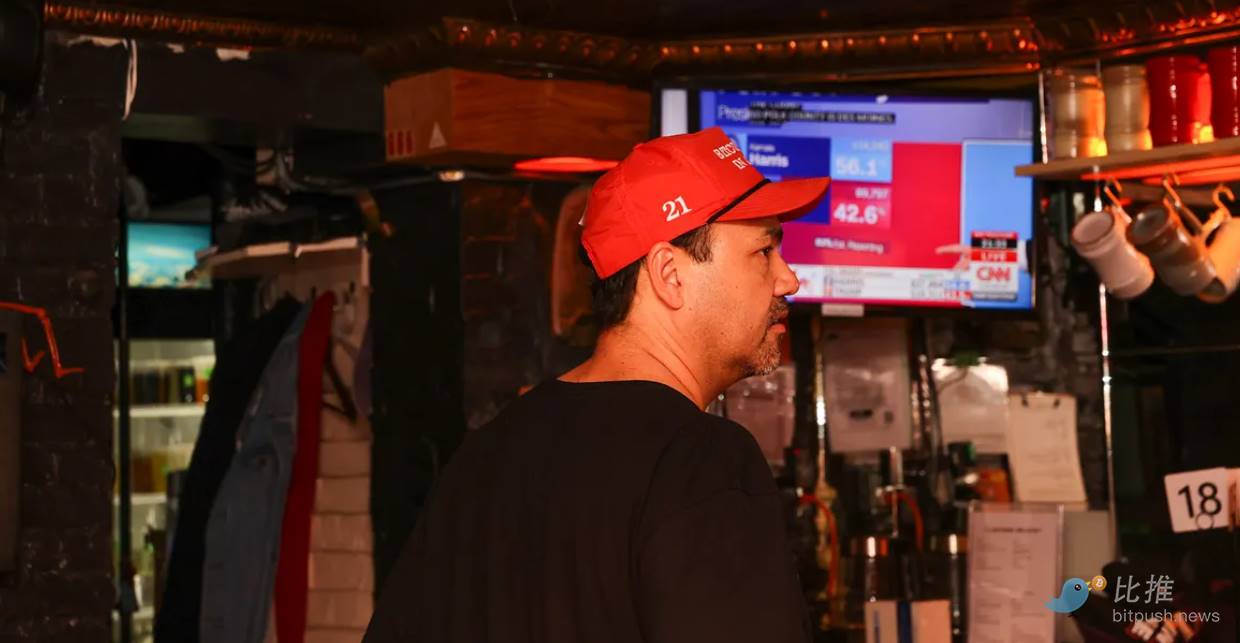Author: Zeke Faux
Compiled by: BitpushNews Yanan
On November 5, dozens of Bitcoin enthusiasts, people wearing MAGA hats, and local residents gathered at PubKey, a Bitcoin-themed bar in Greenwich Village, New York, all closely following the latest developments in the election. The digital screen on the bar wall displayed the real-time price of Bitcoin, and when news favorable to Donald Trump came in, the price of Bitcoin surged past $73,000.
At the same time, Bernie Moreno, a Republican from Ohio, is trying to challenge Senator Sherrod Brown's seat, proposing a hearing on the issue of terrorists using cryptocurrencies. It is worth noting that Moreno's campaign has received up to $40 million in funding from cryptocurrency companies.


Around 10:30 pm that evening, an organizer of a Bitcoin meetup group excitedly announced that according to data from the cryptocurrency betting site Polymarket, Trump's chances of winning had risen to 88%. "Look, Bitcoin is soaring!" he exclaimed excitedly, "You'd better get in before it breaks the $1 million mark!"
Just a year ago, such a scenario would have seemed quite unbelievable. Regulatory agencies have been looming, and token prices are still mired in a devastating crash that has caused heavy losses for investors. SBF, once a leader in the Bitcoin community, has also been prosecuted for fraud and is currently incarcerated. As for Trump's attitude towards Bitcoin, the only thing known to the public is his 2021 statement in Fox Business magazine that Bitcoin is nothing more than a "scam".
By September 2023, the reputation of the Bitcoin industry has plummeted, but it is at this critical juncture that Coinbase founder and billionaire Brian Armstrong has quietly laid the groundwork to carve out a place for cryptocurrencies in Washington. Rewind three months, and Armstrong's company was still being sued by the U.S. Securities and Exchange Commission (SEC), which insisted that most of the transactions conducted over the years were illegal. This lawsuit, as well as similar allegations against other industry giants, seems to portend the impending doom of cryptocurrencies in the United States.
At a cryptocurrency discussion conference held in New York, Armstrong expressed his views. He is optimistic that the cryptocurrency industry can prompt the government to develop more favorable regulatory rules. He emphasizes that the key is the power of money. If the cryptocurrency industry wants to truly have a voice on the political stage, it must significantly increase its political donations, competing with Wall Street or the oil and gas industry, and invest at least $50 million per year. "We have to face the reality," Armstrong said bluntly, "in this world, money can indeed make many things possible."
He solemnly announced that Coinbase will lend a hand to a political action committee called Fairshake, and warmly invites industry peers to join in this effort. At this time, Ryan Selkis, the former head of the cryptocurrency research company Messari, also took the stage and frankly stated the current situation: "We are being tightly squeezed in terms of funding by the pipeline welders of Ohio." "The battle has begun, and we have no way back, because this is a matter of our survival."
His call did not go in vain. In the blink of an eye, the 2024 election cycle arrived, and Armstrong not only successfully reached his fundraising goal, but the results even exceeded everyone's expectations. Cryptocurrency companies have generously donated to Fairshake and its partners, with a total of over $200 million, with Coinbase leading the pack with a donation of $75 million, making the cryptocurrency industry the undisputed champion in political donations. Subsequently, Fairshake carefully allocated these funds to congressional candidates from both parties, and proudly claimed to have helped eliminate Representatives Katie Porter and Jamaal Bowman in the Democratic primaries.

Although Fairshake did not venture into the presidential race, other cryptocurrency tycoons, especially the Gemini founders Winklevoss and the Kraken exchange founder Jesse Powell, were generous, contributing at least $25 million to support Donald Trump. Trump quickly responded, actively embracing cryptocurrencies. At the Bitcoin conference held in Nashville in July, he passionately declared that he would strive to make the United States the "global center of cryptocurrencies" and establish a national strategic Bitcoin reserve. He vowed to fire the chairman of the U.S. Securities and Exchange Commission, Gary Gensler, and replace him with someone more friendly to cryptocurrencies. "If Bitcoin is destined to skyrocket in price and fly to the moon," Trump said enthusiastically, "then America must become the leader."
An industry that was originally intended to resist government control now seems to be pinning its future on politicians, which appears rather ironic. However, in the 15 years since the birth of Bitcoin, the only widespread use of cryptocurrencies has been trading on exchanges - in other words, using real money to bet on the price fluctuations of these digital assets. (In the recent rebound of cryptocurrencies, a meme coin called "dogwifhat" has emerged. This token is a imitation of Dogecoin, with a logo of a dog wearing a baseball cap, and a market capitalization of around $2 billion.) These cryptocurrency trading platforms have made staggering profits, and the U.S. Securities and Exchange Commission has been trying to regulate them and even impose penalties.

The details of the SEC's cases are indeed quite technically complex, but if we use traditional gambling as an example for comparison, the situation may be more intuitive. The commission tends to restrict gambling activities to a few racetracks and impose strict drug testing on the racing horses. The cryptocurrency industry, on the other hand, hopes that this field can be completely open, to the extent that people can use their homes as collateral to bet on live cockfighting in Nicaragua, and even use the winnings from the cockfights to pay for a cup of coffee at Starbucks.
Of course, the supporters of cryptocurrencies would not describe it this way. They prefer to hail cryptocurrencies as "American innovation" and greatly promote how they will empower people with financial freedom. The industry's political advertisements do not even mention cryptocurrencies. For example, the Fairshake ad supporting Moreno claims that he will prevent "illegal immigrants from depriving Ohio of tax revenue".
As the election approaches, the cryptocurrency industry's cynical strategy seems to be paying off. Kamala Harris has begun to show favor towards the industry, although these overtures seem somewhat confused, such as inexplicably incorporating cryptocurrency regulation into her agenda to help the Black community.
Trump himself also took the field, promoting the cryptocurrency project he founded - World Liberty Financial. This idea was initially instilled in several of Trump's sons by a self-proclaimed "internet wealth master" tycoon. Although the cryptocurrency industry has concerns about Trump's token, several party insiders have revealed that this subtle financial connection may actually make the former president more determined to push for cryptocurrency-friendly regulatory policies - as long as he can win the election.

In the PubKey bar on election night, two salesmen in their thirties, wearing MAGA hats, were scrolling through the hot topics on X, joking with a reporter and claiming that if Trump was elected, the reporter would be among the "lucky ones" to be "sent" out of the country. (As they left, they carefully hid their hats in their backpacks.) An elderly compliance officer, wearing a "We Hope Kennedy Returns" vintage brooch, was anxiously discussing the plight of the US dollar. He harshly criticized the US's practice of freezing Russian assets through the banking system after Putin's invasion of Ukraine, calling it a huge mistake. He sighed, "If a currency can be arbitrarily declared invalid by its creator, it fundamentally loses the value and meaning inherent in a currency."
In the bar, customers came and went, all intently watching the election results live stream hosted by Bitcoin Magazine. Others were busy checking the latest odds on Polymarket. The bar owner clarified to me that PubKey was not a bar exclusive to Trump supporters, but almost everyone present admitted to having voted for Trump. Interestingly, Trump himself had visited this underground bar in September, even paying for a pile of cheeseburgers with Bit, though due to his unfamiliarity with the operation, he had to hand his phone to a bar employee to complete the transaction.
A 33-year-old bespectacled man expressed confidence that the Bit strategic reserve that Trump promised to establish would spark a global buying frenzy. "It's like the space race," he vividly analogized, "every country will spare no effort to stockpile as much Bit as possible."
Around 11:15 pm, Bitcoin Magazine CEO David Bailey excitedly announced Trump's victory in the live stream. At the time, he was at the Trump supporters' party in West Palm Beach, Florida, wearing a red hat with the slogan "Make Bit Great Again". Bailey said expectantly, "Now we can put our grand vision for Bit into practice. I eagerly await the dawn of the Orange Presidency and the rise of the Orange Party (referring to the orange color representing Bit, not Trump's russet)."
Fairshake's lobbying efforts have been remarkably effective. Their primary target - Ohio Senator Brown - lost his seat, giving the Republicans control of the Senate, meaning pro-crypto Republican Senator Tim Scott is poised to lead the Banking Committee. Fairshake and its affiliated groups have invested $135 million, and as of last Thursday, 47 of the 56 candidates they supported have been elected. According to data from the non-profit organization Public Citizen, since 2010, the cryptocurrency industry's spending has accounted for more than 15% of all known corporate spending, second only to the oil and gas industry. Fairshake also said they have set aside $78 million for the 2026 midterm elections.

The industry's core demands appear to be on the verge of a breakthrough. Reportedly, the leading candidate to replace Gensler as SEC chairman is the chief legal counsel of a brokerage firm with a positive attitude towards cryptocurrencies. At the same time, some Democratic members of Congress who were previously opposed to pro-crypto legislation have shown a subtle change in attitude.
Willamette University law professor Rohan Grey pointed out: "The cryptocurrency industry's massive investment in this election is undoubtedly a harsh warning to the Democratic Party not to provoke this fight lightly, as it is not in their interest to do so."
In an era of virtually unconstrained corporate spending, cryptocurrency has become an impeccable special interest group. To secure generous donations from the oil industry, politicians may have to push for controversial pipeline projects or allow oil drilling in wildlife preserves, despite strong public opposition. However, there is hardly anyone speaking out against cryptocurrency, as most people still feel bewildered by it.
At the PubKey gathering on election night, I met a 33-year-old product manager. He admitted that although he could not clearly explain the operating principles of Bit, he was quite fond of it.
"I feel like no one really understands this thing," his friend chimed in, boasting that he had already made nearly tenfold returns by investing in Bit.
"Maybe it will become the digital gold standard of the future," the product manager said hopefully.
But his friend was unconvinced, retorting, "That's actually just gambling."








